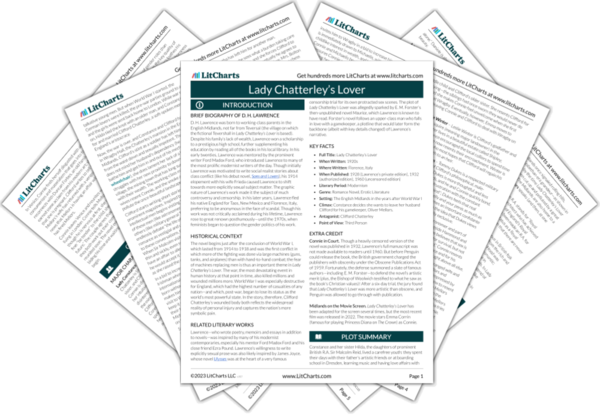Mellors’s belief in being passionate and “warm” comes to be the guiding principle for the couple in this final chunk of the narrative; rather than espousing the importance of emotional intimacy, Mellors emphasizes the importance of tender, instinctual passion (“fucking,” in his lingo). At the same time, Mellors’s sudden coldness toward Connie suggests that he, too, has some fear at the strength of his feelings, despite his clear values.
